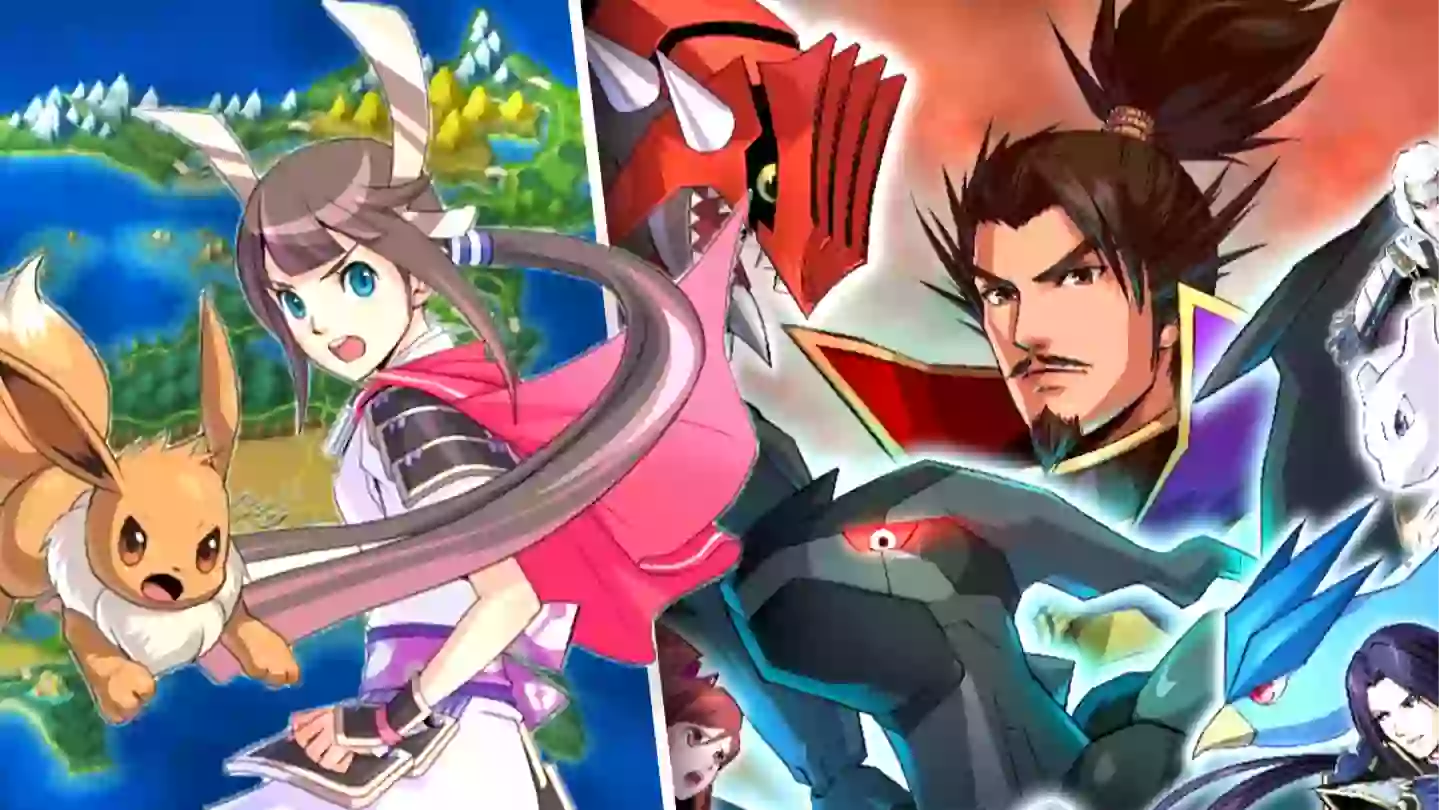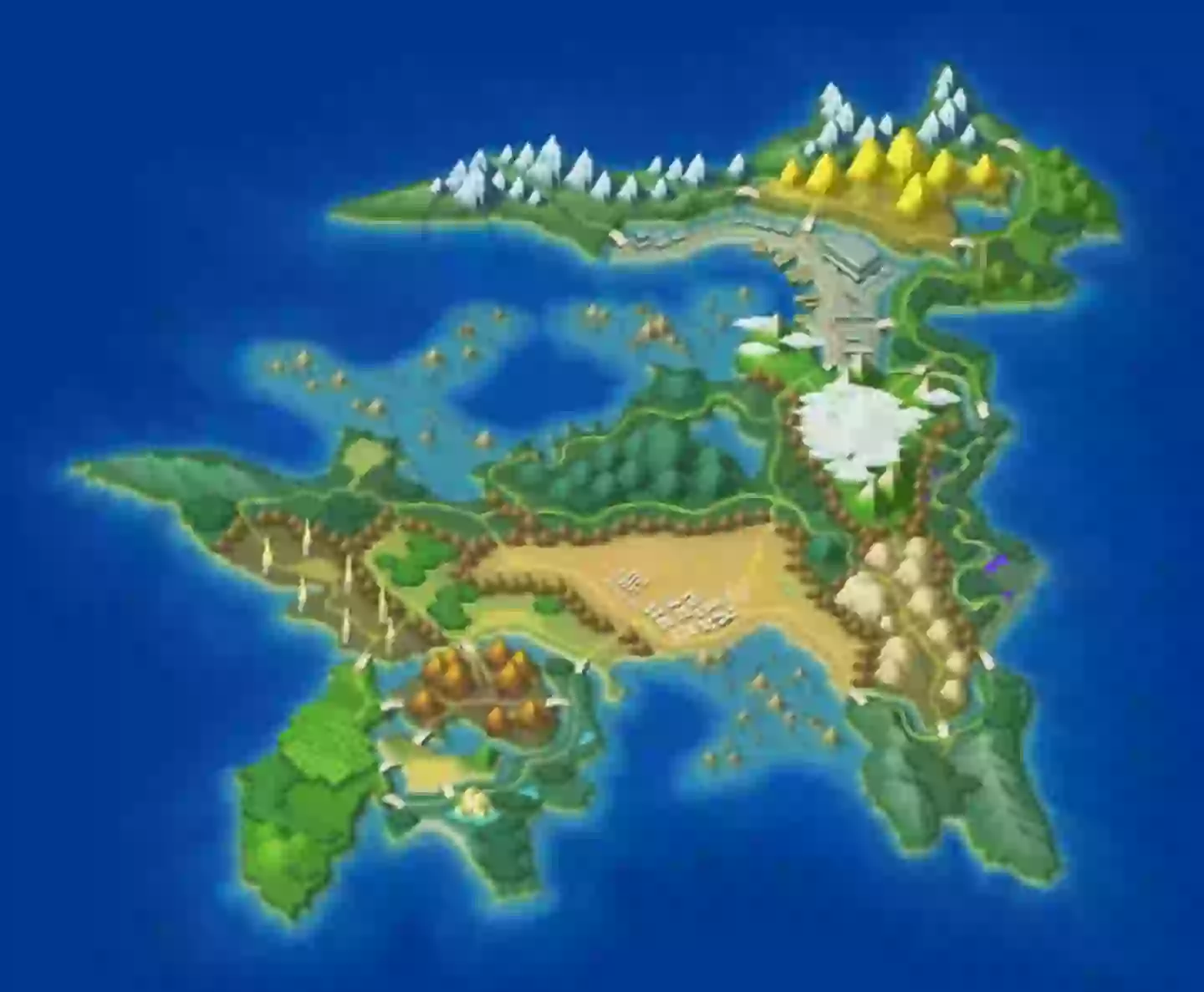
If I were to shout “who remembers Pokémon Conquest” out into a room, I’d be willing to bet that I’d be met with a deafening silence. If I was lucky, maybe one person would reply with a level of excitement somewhat comparable to my own, because let me tell you, this is a really good game. That one person would have very good taste. But for now, it’s just me shouting into the void, so let’s get into it.
Assuming you’re not familiar, Pokémon Conquest was a spinoff crossover game released on the Nintendo DS back in 2012, in that awkward little transitional period after the 3DS was released, but before they could really call the DS fully dead. It’s pretty special even just in concept, being the first full collaborative game project to release from Nintendo and Koei Tecmo, predating Hyrule Warriors by over two years.
Check out the trailer for Pokémon Legends: Arceus, releasing 28 January!
A Pokémon game about warring nations, with literal conflict and colonisation probably sounds a lot more like an edgy fan game than anything that could possibly be put out into the world by Nintendo themselves, but the DS era truly was a wonderful time. The story takes place in the Ransei region, and you play as a Warlord, invading and conquering opposing nations and taking down their Warlords until you gain complete control over the region. Sound intense? It is! They like to tell you that you’re actually ‘uniting’ all the nations, but y’know. Gotta keep hold of that E for Everyone rating somehow.
You’re not actually out to cause an all out Pokémon war though - legend has it that someone able to conquer all of Ransei’s kingdoms will bring return to the region’s creator, which is what your self-insert protagonist is out to do. And, I think it’s fair to say that it wouldn’t take a rocket scientist to work out who that creator might be if you take even a single glance at the region’s map - it’s not exactly subtle. Legends: Arceus? Never heard of it.

Let’s get something straight, there’s absolutely no Pokémon game like Conquest, spinoff or otherwise. Where it really shines is its gameplay - taking direct inspiration from its crossover partner, the Nobunaga’s Ambition series, it’s a tactical RPG. You deploy six Warlords per battle on grid-based maps, each with one Pokémon they’ve linked with (more on that later). While each Pokémon only has one learned move, both them and their Warlords have abilities which can turn the tides of battle, which vary from providing stat boosts, increasing how far your Pokémon can move on the grid, allowing you to move more than once per turn, and more.
Each of the seventeen kingdoms is home to varying terrain and obstacles, such as lava, lakes, and poison traps. While the Mystery Dungeon series is a great example of how Pokémon’s gameplay can be mixed up to form something a little less repetitive than the mainline series, by having the gameplay loop centre around randomised dungeons, Conquest manages to take it to the next level. There are more than enough different maps to keep things varied throughout the story, but even more importantly, the battles actually require some thought and planning - it’s perhaps the first time in any Pokémon game where I’ve actually felt that all the battles were consistently fun and interesting, rather than being mostly filler to pad out the game’s runtime.
In a way slightly reminiscent of the Pokémon Ranger games, where Pokémon were recruited by firing friendship beams at them (yes, really), each Warlord essentially bonds with wild Pokémon out in the field rather than straight up catching them. But, to spice things up, Conquest also introduces an affinity mechanic. Each Warlord has a small group of Pokémon they can form a “Perfect Link” with, to bring out their true potential - the result being that every character can have a perfectly matched partner. Despite the game going for a slightly more serious tone than most Pokémon games, this is such an effective way of hammering home the whole ‘power of friendship’ idea, which, although the mainline games love to tell you is a thing, it isn’t really all that important in them (slamming a Soothe Bell on your Eevee and biking around for an hour shouldn’t count, come on now).
All these gameplay elements are just executed phenomenally well - it’s genuinely difficult to really put into words how fun and unique an experience it is without just yelling at you to try it (here’s me doing that now - do it). It’s also perhaps the furthest that the Pokémon Company have ever really ventured out of the box with a concept for their beloved franchise - although we’ve had a range of different spinoffs, no others have ever gone for the more ‘serious’ tone that Conquest achieved.
The reception for the game when it was released was pretty dang excellent across the board, generally scoring 8’s and 9’s on popular gaming sites (unfortunately before our dear site’s time, but you can guarantee I’d have been giving it the same). That said, it didn’t actually sell all that well - by 29 December 2013, it had sold 345,374 copies in Japan, which, when you compare it to Black and White 2’s 3,076,701 sales at the same time, seems rather measly, especially since the latter also released a few months after Conquest.
With that in mind, perhaps it’s less surprising that there hasn’t been any follow up, or any official talk of any sort of sequel either. Although the fanbase is relatively small, there’s definitely a demand for it (as is apparent by the very existence of this article).
With Game Freak already broadening their horizons with Legends: Arceus (which releases this month now, if you can believe it), it wouldn’t be too out of the way for Conquest to make a comeback. I mean, although it was never specified that Ransei is an ancient region, you can’t deny that Warlords and feuding kingdoms does have a pretty ancient vibe about it. Not to mention the fact that the franchise is really long overdue some diversification in general, with a common consensus among many fans being that standards are slipping. A remake or sequel to Conquest could honestly be just the bit of spice that the Pokémon Company are missing - to reintroduce what’s already such a unique and well-executed concept to the more mainstream Switch audience. I’m going to keep holding onto that hope, anyway, and you can’t stop me. Please, just play this game.
Featured Image Credit: Koei Tecmo, The Pokémon Company